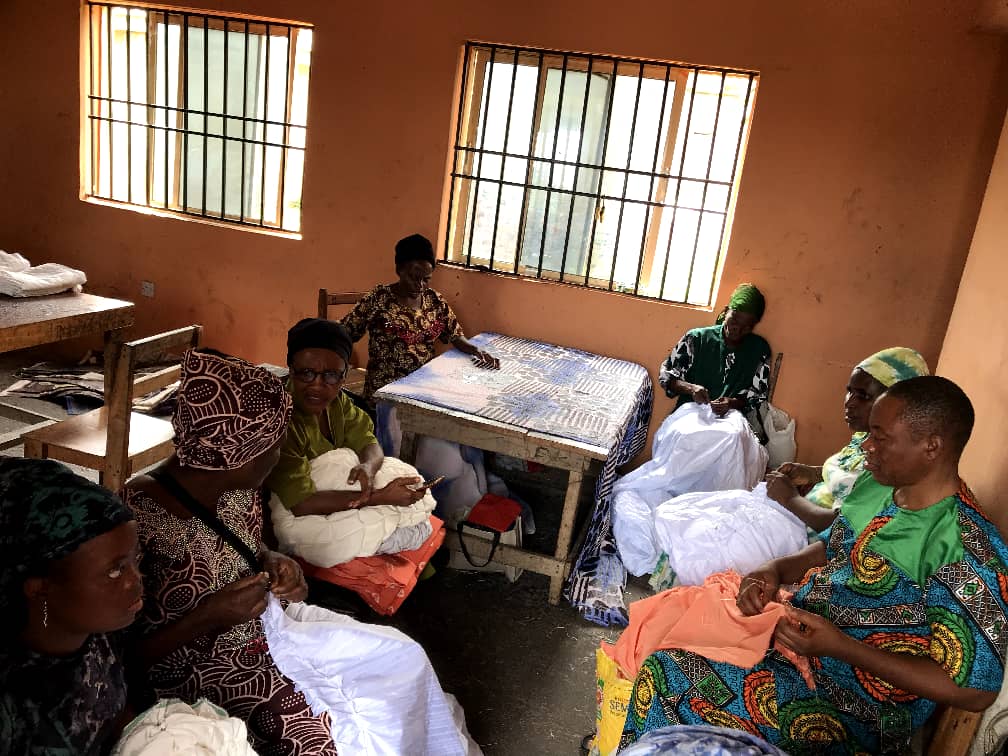What Nigeria Must Do To Prevent More Deaths From Tuberculosis
Ahead of the 2022 World Tuberculosis Day (WTBD), health experts have called on governments at all levels to invest more in Tuberculosis (TB) to eradicate the disease in Nigeria.
The experts said adequate investment will prevent people from dying from TB, a vaccine-preventable and curable disease.
Speaking during a pre TB day conference in Abuja on Friday, acting board chair of the Stop TB Partnership Nigeria, Queen Ogbuji, said the country still accounts for 70 per cent funding gap in TB.
Ms Ogbuji said of the N150 billion ($373 million) needed for TB control in Nigeria in the year 2020, only 31 per cent was available to implementers.
She said about seven per cent of the money released came from the Nigerian government, while 24 per cent came from donors, leaving behind a funding gap of 70 per cent.
She noted that the low levels of funding for TB response year after year is no longer acceptable.
Ms Ogbuji said more investment would save millions of lives and accelerate the end of the TB epidemic.
She lamented that TB remains one of the world’s deadliest diseases and every day, about 4,100 people die, while 30,000 people fall ill from the disease.
What is Tuberculosis?
Tuberculosis is caused by bacteria (Mycobacterium tuberculosis) that often affect the lungs.
It is spread from person to person through the air. When people with TB cough, sneeze or spit, they propel the TB germs into the air. A person needs to inhale only a few of these germs to become infected.
Nigeria ranks sixth amongst 30 countries globally with the highest burden of the disease. Nigeria also ranks first in Africa in the number of undetected cases.
Despite TB being a vaccine-preventable disease, statistics from the WHO show that every year, about 245,000 Nigerians die from TB, and about 590,000 new cases occur (of these, around 140,000 are also HIV-positive).
World Health Organisation (WHO) Headquarters in Geneva, Switzerland. Copyright : WHO/Pierre Virot
World Health Organisation (WHO) Headquarters in Geneva, Switzerland.
Copyright : WHO/Pierre Virot
TB is the number one infectious killer disease in the world and also among the top 10 causes of death worldwide.
One-quarter of the World’s population, approximately 1.9 billion people, is infected with TB.
More advocacy
The Executive Director of KNCV TB Foundation Nigeria, Bethrand Odume, said Nigeria still accounts for 4.6 per cent of the global infections.
Mr Odume also said there is a huge gap in paediatric TB case finding and adequate funding will be required to tackle this.
He said although efforts are being made to improve the uptake of vaccines to prevent more TB cases, a lot is still required.
ⓘ
He called for adequate supplies of drugs and essential commodities, as well as strengthening of the country’s health system.
In his remarks, the National Coordinator, National Tuberculosis and Leprosy Control Programme (NTBLCP), Chukwuma Anyaike, said childhood TB contributes significantly to the burden of the disease in Nigeria.
Mr Anyaike said under-diagnosis and mis-diagnosis of TB in children are common and of concern, especially in children under the age of Five.
He said despite the availability of the Bacille Calmette–Guérin (BCG) vaccines to prevent TB, more children still get sick from the disease.
He urged parents to present their wards for vaccination at the appropriate time.
“BCG vaccination given to babies and young children provides consistent protection up to 80 per cent against severe forms of childhood TB, such as TB meningitis.
“It can be less effective against TB affecting the lungs in adults. The protection from the BCG vaccine can last up to 15 years,” he said.
World TB Day
To create awareness about the impact of TB, World Tuberculosis Day is marked on March 24 every year.
The day is held to raise public awareness about the health, social and economic consequences of TB, and to step up efforts to end the global epidemic.
The theme of World TB Day 2022 is ‘Invest to End TB. Save Lives’ and Nigeria’s localised slogan is ‘Give more, Do more, End TB now.’
The theme conveys the urgent need to invest resources to ramp up the fight against TB and achieve the commitments made by global leaders to end TB.















Post Comment